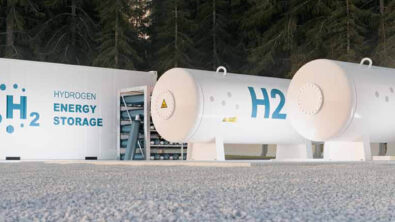Solve hydrogen ecosystem development challenges using simulation

To achieve net zero greenhouse gas emissions by 2050, global power supplies must be diversified using renewable energies. Achieving this goal is not without steep challenges, as renewables such as solar power and wind are not ideal for all locations and face transportation and storage issues.
Here’s some good news: hydrogen, the universe’s most abundant element, has been identified as potentially the most affordable and efficient renewable energy solution for transportation and power generation applications. Watch our on-demand webinar to learn how using system simulation helps businesses overcome hydrogen ecosystem development challenges while reducing costs.
Improve your hydrogen ecosystem designs
Hydrogen can be used in fuel cells, turbines or other power-generating applications, and it doesn’t emit C02. Because of its versatility, many countries have developed clean hydrogen production strategies and invested in its transport and usage. In our webinar, you’ll learn how system simulation helps improve hydrogen ecosystem designs. Using system simulation, it’s possible to capture all the physics in a single model. This helps engineers identify and better understand the interactions between the physics and the subsystems. The information helps define the best architectures, integrate components and validate their controls.
Overcome hydrogen storage challenges
With system simulation, businesses can overcome hydrogen storage challenges, including sizing the storage system. Watch our webinar to discover how system simulation makes it possible to predict interactions, integrate new components and design better systems. You can also adapt the level of your models, select detailed models to design the subsystems, and capture their physics and dynamics. Select simple models to quickly simulate annual scenarios and evaluate subsystem integration.
Solve hydrogen-specific issues in combustion engines
System simulation is an important tool for investigating the potential of hydrogen in internal combustion engines. A systems approach allows you to study cross-couplings like air path/injection/control along with controls on combustion heat release and emissions. It also enables subsystem integration with the combustion center, including hydrogen storage, charging systems and injection systems. Watch the webinar to learn how to solve hydrogen-specific issues in combustion engines!


